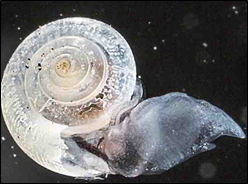Researchers assessing biological impacts of ocean acidification in the Salish Sea

SCCWRP and its partners have launched an effort to assess the vulnerability of marine calcifying communities in the Pacific Northwest’s Salish Sea to ocean acidification, including whether land-based pollution sources are exacerbating acidification’s biological impacts.
The goal is to develop locally derived biological assessment endpoints for interpreting the chemistry data coming out of computer models that predict ocean acidification conditions in the Salish Sea. The Salish Sea, which encompasses Puget Sound, straddles the Washington-Canada border.
The project dovetails with a broader computer modeling effort to understand how marine communities all along the North American West Coast will be impacted by ocean acidification, and the degree to which land-based pollution sources are exacerbating acidification and hypoxia conditions. Researchers intend to compare the technical approaches used in the Salish Sea to those being used in the Southern California Bight and the San Francisco coastal region.
More news related to: Climate Change, Ocean Acidification and Hypoxia